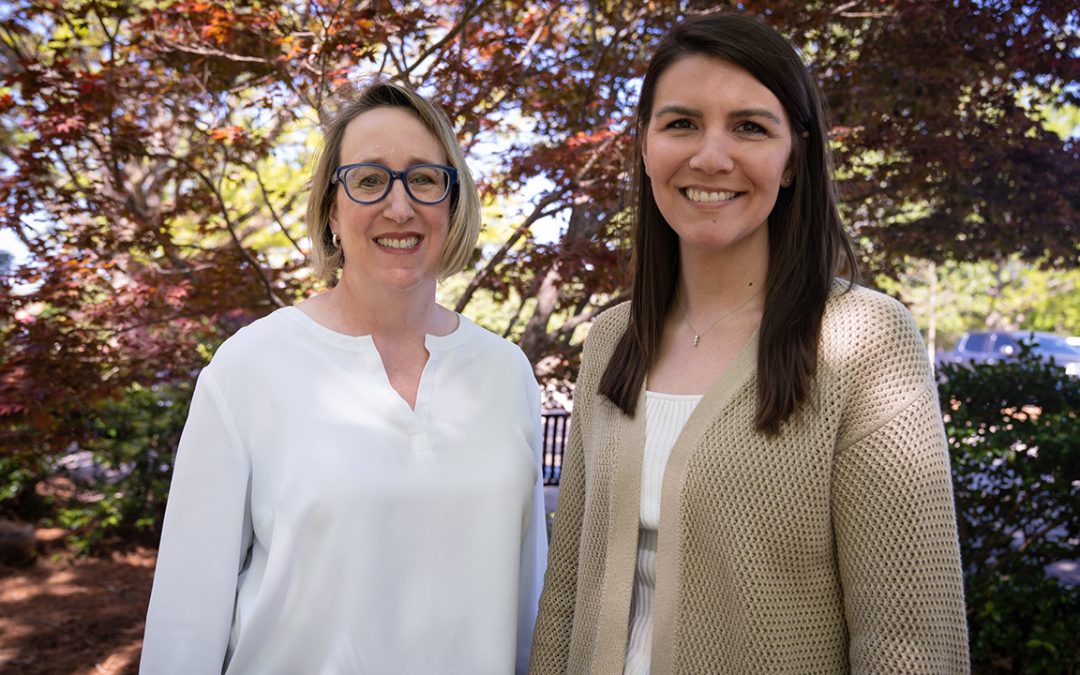Auburn ag economist’s study refutes challenges to country-of-origin labeling
by JAMIE CREAMER

INTERNATIONAL IMPACT – Professor Bob Taylor’s study of the impact of USDA’s mandatory country-of-origin labeling could affect an upcoming World Trade Organization ruling.
An Auburn University professor’s rigorous analysis of almost 30 years’ worth of U.S. cattle import and price data debunks foreign beef competitors’ claims that the U.S. Department of Agriculture’s mandatory country-of-origin labeling of beef and other meat products limits their access to U.S. livestock markets and is costing them billions of dollars.
The report that Robert Taylor, Alfa eminent scholar of agricultural economics and public policy at Auburn, released in late January could factor into the World Trade Organization’s upcoming decision on whether the labeling regulations do or do not interfere with global trade.
Country-of-origin labeling, or COOL, was established and amended in the 2002 and 2008 Farm Bills, respectively, to provide U.S. consumers information on where the meats they buy were born, raised and processed. Almost immediately, Canada and Mexico formally protested the labeling requirements to the World Trade Organization, alleging that they interfere with free trade because they discourage U.S. meatpackers and processors from purchasing live Canadian and Mexican cattle.
Canada claims its loss of access to U.S. livestock markets because of the law costs the country $1.4 billion annually. But Taylor’s findings discredit such claims and indicate that any market declines the two countries have experienced after COOL was implemented can be attributed to the Great Recession.
“Our study shows that COOL has not directly caused the declines in Canadian and Mexican livestock exports to the U.S., nor has it negatively affected the price paid for imported slaughter cattle relative to comparable domestic cattle,” Taylor says.
Instead, he says, “The implementation of COOL largely coincided with a substantial global economic downturn that basically sapped consumer demand for more expensive meat products, domestic and imported.”
He notes that currently, cattle trade has returned to its pre-recession levels.
In their World Trade Organization claim that U.S. COOL regulations discriminate against imported livestock and meat from Canada and Mexico, the two countries cited an economic study supporting their allegation. That analysis, Taylor says, was funded by the Canadian Cattlemen’s Association and the Canadian government and drew its conclusions based on a single, proprietary data set that is controlled by the cattlemen’s group and inaccessible to the public.
By contrast, in the study he conducted at the request of several national agricultural and food organizations, Taylor considered multiple variables over several years, including 2005-14 price reporting data, which U.S. beef packers are required to submit directly to USDA, and weekly USDA data on Canadian feeder cattle prices; and, from 1995 to 2014, monthly USDA data and USDA/U.S. Census Bureau trade data.
Domestic and international meatpackers, along with Canadian and Mexican industry groups, filed suit against USDA in mid-2013 in federal district court on grounds that the COOL law requiring meat processors to put the labels on their products violated their First Amendment right to free speech and that the agency had overstepped its bounds in its COOL requirements. The plaintiffs withdrew the suit Feb. 9, 2015.
The 2009 World Trade Organization case, however, has been more prolonged and remains an issue, Taylor says. The U.S. has partially lost two appeals to the organization’s ruling that COOL regulations discriminate against imported cattle and hogs and violate global trade agreements. In late February, a WTO panel heard arguments in a third U.S. appeal and is expected to issue its decision in the spring.
“The two previous rulings were made given Canada’s arguments that COOL rules are costing its meat industry $1.4 billion in business per year, and, in fact, if the WTO rules against the U.S. a third time, Canada is expected to retaliate against COOL by levying $1.4 billion in tariffs on U.S. exports of other products,” Taylor says.
Although U.S. federal courts have supported COOL twice, under international trade agreement, the world trade group’s ruling takes precedence over U.S. laws.
Taylor’s econometric report was released almost a month before the global trade group hearing.
“Our detailed analysis indicates that cattle export opportunities from Canada and Mexico to the U.S. are subject to a number of variables that are completely independent of COOL implementation,” he says. “I’m optimistic that the WTO will take our findings into consideration in making its ruling.”




